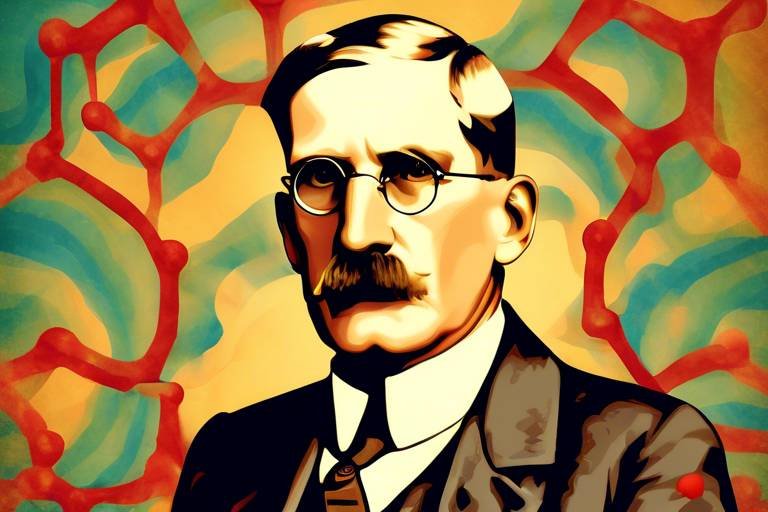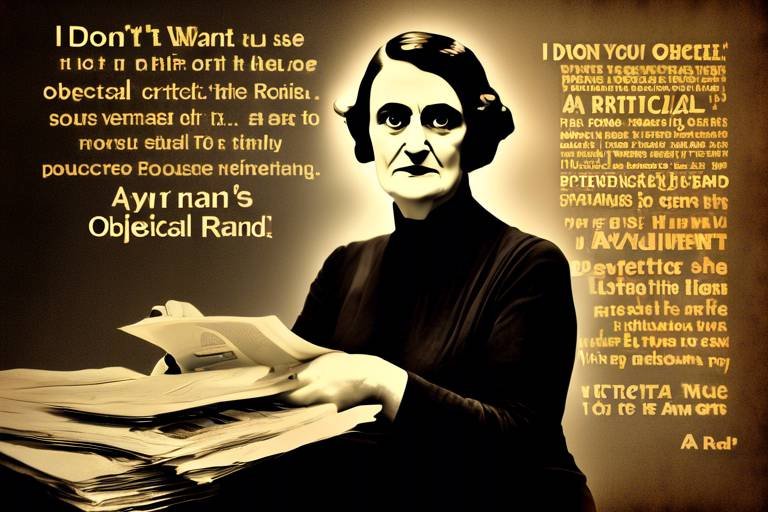Epistemological Skepticism - A Contemporary Review
Epistemological skepticism is a fascinating and complex area of philosophy that challenges our understanding of knowledge and belief. At its core, skepticism questions the very foundations of what we consider to be true. In a world overflowing with information, where opinions often masquerade as facts, this philosophical inquiry becomes increasingly relevant. Are we truly capable of knowing anything with certainty? Or are we merely constructing elaborate narratives based on shaky premises? This article dives deep into the nuances of epistemological skepticism, tracing its historical roots, exploring its contemporary relevance, and examining its implications for our beliefs and knowledge systems.
To grasp the essence of epistemological skepticism, it's crucial to explore its historical background. Skepticism has been a part of philosophical discourse since ancient times, with roots that can be traced back to the Greco-Roman period. The ancient skeptics, such as Pyrrho and Sextus Empiricus, laid the groundwork for questioning the possibility of certain knowledge. They argued that for every argument, there exists an opposing argument, leading to a state of perpetual doubt. This foundational skepticism has evolved over centuries, influencing various philosophical traditions and prompting thinkers to grapple with the implications of doubt in their own work.
Throughout history, several key philosophers have made significant contributions to the discourse on skepticism and knowledge. Among them, René Descartes and David Hume stand out for their profound insights and lasting impact. Descartes, often regarded as the father of modern philosophy, introduced the method of doubt as a means to achieve certainty. His famous assertion, "I think, therefore I am," encapsulates his quest for indubitable knowledge. On the other hand, Hume's empirical skepticism challenges the very notion of causation and raises critical questions about human understanding. Together, these philosophers illuminate the complexities of knowledge and the persistent shadow of skepticism.
Descartes' method of doubt is a cornerstone of his philosophical approach, designed to strip away all beliefs that could be called into question. By doubting everything, including the existence of the external world and even his own body, Descartes sought to arrive at something that could not be doubted. This rigorous process led him to the conclusion that the act of thinking itself is undeniable. Descartes' skepticism was not merely an exercise in doubt for its own sake; rather, it was a pathway to achieving clarity and certainty in knowledge. His approach has laid the groundwork for modern epistemology, prompting subsequent philosophers to explore the implications of his findings.
Exploring Descartes' quest for indubitable knowledge reveals the significance of his famous statement, "I think, therefore I am." This declaration is not just a philosophical musing; it serves as a foundation upon which Descartes builds his epistemological framework. By establishing the existence of the self as a thinking being, he creates a secure starting point for knowledge. However, this certainty raises further questions: If we can be certain of our own existence, what about the existence of the external world? Descartes' work invites us to consider the relationship between the self and knowledge, challenging us to reflect on what we can truly claim to know.
In the wake of Descartes' skepticism, later philosophers responded with various perspectives on the nature of knowledge. Some, like Spinoza and Leibniz, sought to provide rational foundations for knowledge that could withstand skeptical challenges. Others, such as empiricists, argued for a more experiential approach to understanding the world. This ongoing dialogue illustrates the dynamic nature of epistemological skepticism and its ability to provoke thoughtful discourse across philosophical traditions.
Hume's skepticism takes a different angle, focusing primarily on empirical knowledge and the concept of causation. He famously questioned the assumption that we can derive knowledge about the world solely through experience. Hume posited that our beliefs about cause and effect are not grounded in rational certainty but are instead habits of thought formed through repeated experiences. This raises profound questions about the limits of human understanding and the reliability of scientific reasoning. If our knowledge is based on patterns rather than certainties, how can we trust our conclusions? Hume's insights invite us to reconsider the foundations of our beliefs and the nature of knowledge itself.
The relevance of epistemological skepticism extends far beyond the confines of philosophy classrooms. In contemporary debates surrounding knowledge, belief, and truth, skepticism plays a pivotal role. In an age where misinformation spreads rapidly and critical thinking is often sidelined, the ability to question and doubt becomes crucial. Skepticism encourages us to engage with information critically, fostering a culture of inquiry that is essential for navigating the complexities of modern life.
One of the most significant areas where skepticism manifests is in science and technology. The scientific method itself is built on principles of skepticism—hypotheses are tested, questioned, and refined through rigorous experimentation. In this context, skepticism serves as a catalyst for innovation, driving researchers to challenge existing paradigms and seek deeper truths. Furthermore, in an era dominated by technology, where data can be manipulated and misrepresented, a skeptical mindset is vital for discerning fact from fiction. It empowers individuals to scrutinize information critically, fostering a more informed society.
Beyond the realms of knowledge and science, skepticism also carries ethical implications. The act of doubting can influence moral beliefs and decision-making processes. When we question the validity of our moral frameworks, we open ourselves up to a deeper understanding of ethics. However, this can also lead to paralysis, as constant doubt may hinder decisive action. Balancing skepticism with ethical convictions is crucial for navigating the complexities of moral dilemmas in contemporary society.
- What is epistemological skepticism? - It is a philosophical inquiry that questions the possibility of certain knowledge.
- Who are the key philosophers associated with skepticism? - Notable figures include René Descartes and David Hume, each contributing unique perspectives on knowledge and doubt.
- How does skepticism influence modern science? - Skepticism encourages critical thinking and rigorous testing of hypotheses, essential for scientific progress.
- What are the ethical implications of skepticism? - Doubt can challenge our moral beliefs, prompting deeper reflection but also potentially leading to indecision.

Historical Background of Skepticism
Understanding the origins of epistemological skepticism provides essential context for its evolution. The roots of skepticism can be traced back to ancient philosophical traditions, particularly in the realms of Greek philosophy. Skepticism, in its most fundamental form, questions the possibility of certain knowledge. This questioning attitude has been a cornerstone of philosophical inquiry, prompting thinkers to explore the limits of human understanding and the nature of belief.
In ancient Greece, the Pyrrhonists, led by Pyrrho of Elis, laid the groundwork for skeptical thought. They proposed that because every argument has an opposing argument, one should suspend judgment on all matters. This radical skepticism suggested that achieving true knowledge was impossible, encouraging individuals to live according to their perceptions rather than seeking absolute truths. The Pyrrhonists emphasized the importance of tranquility (ataraxia) as a state of mind that could be achieved by relinquishing the pursuit of certain knowledge.
Another significant contributor to the history of skepticism was Sextus Empiricus, whose works compiled and expanded upon the ideas of the Pyrrhonists. He argued that skepticism could lead to a more peaceful life, as it frees individuals from the anxiety of seeking certainty. His writings, particularly the Outlines of Pyrrhonism, are essential texts that continue to influence modern skeptical thought.
Fast forward to the Renaissance period, and we see a resurgence of skepticism, particularly with the rise of humanism. Thinkers such as Michel de Montaigne embraced skepticism as a means of questioning established doctrines and promoting critical thinking. Montaigne famously stated, "What do I know?" which encapsulates the essence of skeptical inquiry. His essays encouraged readers to reflect on their beliefs and the nature of knowledge itself.
As we moved into the Enlightenment, skepticism began to intertwine with the scientific revolution. The questioning spirit of the time led to significant advancements in various fields, including philosophy, science, and politics. The emphasis on reason and empirical evidence became a hallmark of this era, further shaping the discourse on knowledge. This period also saw the emergence of rationalism and empiricism, which would later challenge and refine skeptical arguments.
In summary, the historical background of skepticism reveals a rich tapestry of thought that has evolved over centuries. From the ancient Pyrrhonists to the Renaissance humanists, skepticism has continually pushed the boundaries of knowledge and belief. It invites us to question our assumptions and recognize the complexities of understanding the world around us. By examining these historical roots, we can appreciate the profound impact skepticism has had on contemporary philosophical debates.
- What is epistemological skepticism? - It is the philosophical view that questions the possibility of certain knowledge.
- Who were the key figures in the history of skepticism? - Key figures include Pyrrho of Elis, Sextus Empiricus, and Michel de Montaigne.
- How has skepticism influenced modern philosophy? - Skepticism has encouraged critical thinking and the questioning of established beliefs, impacting various fields including science and ethics.

Key Philosophers and Their Contributions
When we dive into the realm of epistemological skepticism, we can't overlook the towering figures who have shaped our understanding of knowledge and belief. Among these, René Descartes and David Hume stand out as pivotal philosophers whose ideas continue to resonate in contemporary discussions. Their contributions are not merely historical footnotes; they are the bedrock upon which modern epistemology is built. So, let’s explore how these thinkers have influenced our perception of knowledge.
Descartes, often heralded as the father of modern philosophy, introduced a revolutionary approach to skepticism known as the Method of Doubt. This method involves systematically questioning the validity of everything we believe to be true. Imagine standing at the edge of a cliff, peering into the abyss of uncertainty—this is where Descartes invites us to begin our journey of knowledge. By doubting all that can be doubted, he sought to strip away the layers of deception that cloud our understanding. His famous declaration, "Cogito, ergo sum" (I think, therefore I am), emerges from this process, establishing a foundation of certainty amidst the chaos of doubt.
In his quest for indubitable knowledge, Descartes posited that the very act of thinking is proof of existence. This idea is not just philosophical jargon; it serves as a beacon of light in a sea of skepticism. By asserting that our thoughts are the only things we can be absolutely certain of, Descartes laid the groundwork for a new epistemological framework. He argued that while our senses can deceive us, the act of doubt itself affirms our existence. This profound realization shifted the focus of philosophy from a reliance on external truths to an inward exploration of consciousness.
Following Descartes, various philosophers emerged to challenge and refine his ideas. Thinkers like Baruch Spinoza and Gottfried Wilhelm Leibniz offered alternative perspectives on the nature of certainty and knowledge. Spinoza, for example, emphasized a rationalist approach, suggesting that knowledge comes from understanding the universe's underlying principles. On the other hand, Leibniz introduced the concept of innate ideas, positing that certain truths are hardwired into our minds. These responses to Cartesian skepticism not only enriched philosophical discourse but also highlighted the complexity of understanding knowledge itself.
Fast forward to the 18th century, and we encounter David Hume, whose empirical skepticism posed a different kind of challenge to the quest for knowledge. Hume questioned the very foundations of causation and the reliability of human understanding. He famously argued that our beliefs about cause and effect are not grounded in rational proof but rather in habit and experience. Picture a child learning that a ball rolls down a hill every time it’s pushed. They may expect it to happen again, but Hume would suggest that this expectation stems from repeated observation rather than a logical guarantee. His skepticism about empirical knowledge pushed philosophers to reconsider the limits of human reason and the nature of scientific inquiry.
Hume’s ideas resonate deeply in today’s discussions about scientific reasoning and the nature of truth. By challenging the certainty of empirical knowledge, he opened the door to a more nuanced understanding of how we come to know what we claim to know. His work continues to influence contemporary debates, particularly in fields that grapple with the nature of evidence and belief.
In summary, the contributions of Descartes and Hume to epistemological skepticism are invaluable. They not only laid the groundwork for modern philosophy but also ignited ongoing discussions about the nature of knowledge itself. As we navigate through the complexities of belief systems today, their insights remind us that questioning our understanding is not a sign of weakness but a pathway to deeper knowledge.
- What is epistemological skepticism?
Epistemological skepticism is a philosophical approach that questions the possibility of certainty in knowledge. It challenges the validity of what we claim to know. - Who are the key philosophers associated with skepticism?
René Descartes and David Hume are two of the most influential philosophers in the field of epistemological skepticism. - How did Descartes influence modern philosophy?
Descartes introduced the Method of Doubt, emphasizing the importance of questioning everything to find indubitable truths, which laid the foundation for modern epistemology. - What does Hume's empirical skepticism entail?
Hume argued that our understanding of causation is based on habit and experience rather than rational proof, challenging the reliability of empirical knowledge.

René Descartes' Method of Doubt
René Descartes, often hailed as the father of modern philosophy, introduced a revolutionary approach to understanding knowledge through his Method of Doubt. This method is not merely about skepticism; it’s a systematic process of questioning the very foundations of what we claim to know. Imagine standing on a shaky bridge; before you take a step forward, you would want to ensure it’s solid. Similarly, Descartes encourages us to doubt everything that can possibly be doubted, allowing us to sift through the rubble of uncertainty to find something that is undeniably true.
At the heart of Descartes' method lies the idea that by doubting everything, we can arrive at a point of certainty. He famously stated, "Cogito, ergo sum" or "I think, therefore I am." This assertion serves as a cornerstone of his philosophy, illustrating that the very act of doubt implies a thinking subject. In other words, even if one doubts everything else, the fact that one is thinking is irrefutable proof of one's existence. This insight was revolutionary, as it shifted the focus from external objects to the self as the primary locus of knowledge.
To further understand Descartes' approach, we can break down his method into several key stages:
- Doubt Everything: Begin by questioning all beliefs and knowledge claims.
- Identify What is Indubitable: Seek out beliefs that withstand rigorous doubt.
- Rebuild Knowledge: Once a firm foundation is established, reconstruct knowledge based on these indubitable truths.
This method not only serves as a philosophical tool but also as a practical framework for navigating life's uncertainties. Think about how often we accept information at face value without questioning its validity. Descartes' method serves as a reminder to approach knowledge with a critical eye, especially in an age where misinformation can spread like wildfire.
Moreover, Descartes' skepticism paved the way for modern epistemology by challenging the notion of certain knowledge. His inquiries led to a profound exploration of the limits of human understanding. As he delved deeper into the nature of perception and reality, he raised vital questions: What can we truly know? How do we distinguish between belief and knowledge? These questions remain central to philosophical discourse today, underscoring the enduring relevance of Descartes' work.
In essence, Descartes' Method of Doubt invites us to engage in a profound journey of self-discovery and critical thinking. By embracing skepticism, we not only sharpen our intellect but also cultivate a deeper understanding of our beliefs and the world around us. It’s a call to arms for thinkers, urging us to dig deeper and not settle for superficial understandings of reality.

Cartesian Certainty
When we dive into the concept of , we're really exploring a pivotal moment in the history of philosophy. René Descartes, often hailed as the father of modern philosophy, introduced a radical approach to understanding knowledge and existence. His famous declaration, "Cogito, ergo sum" (I think, therefore I am), serves as a cornerstone for his epistemological framework. But what does this really mean? Essentially, Descartes was saying that the very act of thinking is proof of one’s existence. This idea was revolutionary because it shifted the focus from external certainties to internal, subjective experiences.
Descartes embarked on a quest for indubitable knowledge, seeking something that could not be doubted. He famously employed a method of systematic doubt, where he questioned everything he believed to be true, including the existence of the physical world and even mathematical truths. This approach wasn't just a philosophical exercise; it was a way to strip away all assumptions and arrive at a foundation of certainty. Imagine peeling an onion—each layer represents a belief or assumption, and as you peel away, you seek that one core truth that remains intact, no matter what.
To illustrate Descartes' ideas, let’s consider a simple table that outlines the key components of his philosophy:
| Concept | Description |
|---|---|
| Method of Doubt | A technique to eliminate beliefs that can be doubted, leading to certainty. |
| Cogito, ergo sum | The realization that thinking is proof of existence. |
| Clear and Distinct Perceptions | Beliefs that are so clear and distinct that they cannot be doubted. |
One of the most compelling aspects of Cartesian certainty is the idea of clear and distinct perceptions. Descartes argued that if something is perceived clearly and distinctly, it is true. This principle became a guiding light for subsequent philosophers and scientists. However, it also raised critical questions: What if our perceptions are flawed? Can we trust our senses? This skepticism towards sensory experience is a theme that resonates through the ages and continues to challenge our understanding of reality.
Moreover, Descartes' search for certainty also led to discussions about the nature of God and the external world. He posited that a benevolent God would not deceive us into believing in a false reality. This theological underpinning was crucial for Descartes, as it provided a bridge between the certainty of thought and the existence of the external world. But does this reliance on a divine being as a guarantor of truth hold water? Critics have pondered whether this is a reasonable assumption or merely a leap of faith.
In conclusion, Cartesian certainty is not just a philosophical concept; it's a lens through which we can examine our own beliefs and the foundations of our knowledge. Descartes invites us to question everything, to seek that which is undeniably true, and to confront the uncomfortable reality that much of what we accept as knowledge may, in fact, be built on shaky ground. As we navigate this complex landscape of ideas, we are left with a powerful question: What do we truly know, and how can we be certain of it?
- What is Cartesian Certainty? - It refers to the foundational ideas proposed by René Descartes regarding knowledge and existence, emphasizing the certainty of self-awareness.
- How did Descartes achieve certainty? - Through a method of systematic doubt, questioning all beliefs until he found an indubitable truth.
- Why is "Cogito, ergo sum" significant? - It establishes the act of thinking as proof of existence, marking a shift in philosophical thought.

I think, therefore I am.
Understanding the origins of epistemological skepticism provides essential context for its evolution. This section delves into ancient philosophical traditions that shaped skeptical thought.
This section highlights influential philosophers, such as Descartes and Hume, who have significantly shaped the discourse on skepticism and knowledge.
Descartes' approach to skepticism, particularly his method of doubt, challenges the certainty of knowledge and lays the groundwork for modern epistemology.
Exploring Descartes' quest for indubitable knowledge, this subheading discusses the significance of his famous statement, This phrase encapsulates the essence of Cartesian philosophy, serving as a foundational element in the pursuit of knowledge. Descartes posited that while all external truths could be doubted, the very act of doubting implies a thinker’s existence. In a world rife with uncertainty, this assertion stands as a beacon of certainty. Imagine being lost in a fog; despite the obscured surroundings, the very act of questioning your existence—“Am I really here?”—affirms your presence. This profound realization is what Descartes sought to establish as the bedrock of epistemology.
But why is this statement so revolutionary? It not only asserts existence but also highlights the relationship between thought and being. In a sense, it’s a philosophical mirror reflecting our consciousness back at us. The implications of this idea extend far beyond mere existence; it challenges us to consider the nature of reality and the limits of our understanding. Descartes' assertion invites us to engage in a deeper exploration of our beliefs and the knowledge we claim to possess.
This section examines how later philosophers responded to Descartes' skepticism, offering various perspectives on the nature of knowledge. Many thinkers, like Spinoza and Leibniz, embraced Descartes' foundational ideas while also critiquing and expanding them. They argued about the nature of substance and the interconnectedness of all things, suggesting that while doubt is essential, it must be balanced with a broader understanding of existence. This ongoing dialogue illustrates the dynamic nature of philosophical inquiry, where skepticism serves both as a challenge and a catalyst for deeper understanding.
Hume's skepticism centers on empirical knowledge and causation, raising questions about the limits of human understanding and the nature of scientific reasoning.
The relevance of epistemological skepticism in contemporary debates on knowledge, belief, and truth is profound. This section discusses its impact on various fields.
This subheading explores how skepticism influences scientific inquiry and technological advancements, emphasizing the importance of critical thinking in these domains.
Examining the ethical implications of skepticism, this section discusses how doubt can affect moral beliefs and decision-making processes.
- What is epistemological skepticism?
Epistemological skepticism is a philosophical approach that questions the possibility of certainty in knowledge.
- Who is René Descartes?
René Descartes was a French philosopher known for his contributions to modern philosophy and his famous declaration, "I think, therefore I am."
- How does skepticism apply to science?
Skepticism in science encourages rigorous questioning and verification of knowledge claims, ensuring that conclusions are based on evidence.

This article explores the nuances of epistemological skepticism, examining its historical roots, contemporary relevance, and implications for knowledge and belief systems in modern philosophy.
Understanding the origins of epistemological skepticism provides essential context for its evolution. This section delves into ancient philosophical traditions that shaped skeptical thought.
This section highlights influential philosophers, such as Descartes and Hume, who have significantly shaped the discourse on skepticism and knowledge.
Descartes' approach to skepticism, particularly his method of doubt, challenges the certainty of knowledge and lays the groundwork for modern epistemology.
Exploring Descartes' quest for indubitable knowledge, this subheading discusses the significance of his famous statement, I think, therefore I am.
This section examines how later philosophers responded to Descartes' skepticism, offering various perspectives on the nature of knowledge.
Hume's skepticism centers on empirical knowledge and causation, raising questions about the limits of human understanding and the nature of scientific reasoning.
The relevance of epistemological skepticism in contemporary debates on knowledge, belief, and truth is profound. This section discusses its impact on various fields.
This subheading explores how skepticism influences scientific inquiry and technological advancements, emphasizing the importance of critical thinking in these domains.
Examining the ethical implications of skepticism, this section discusses how doubt can affect moral beliefs and decision-making processes.
In this section, we address some common questions regarding epistemological skepticism to clarify its principles and implications further.
- What is epistemological skepticism?
It is a philosophical approach that questions the possibility of certainty in knowledge, suggesting that we can never truly know anything with absolute certainty. - How does skepticism relate to science?
Skepticism encourages scientists to question assumptions, leading to more rigorous testing and validation of theories, ultimately fostering a deeper understanding of the natural world. - Can skepticism be beneficial?
Absolutely! Skepticism promotes critical thinking and helps individuals avoid dogmatism, allowing for more open-minded discussions and evaluations of beliefs. - Is skepticism only negative?
While skepticism can lead to doubt, it is not inherently negative. It can serve as a tool for inquiry and intellectual growth, pushing us to seek better evidence and understanding.

Responses to Cartesian Skepticism
When René Descartes introduced his method of doubt, he didn't just stir the pot; he flipped the whole table of philosophical inquiry upside down. His radical skepticism, which questioned the very foundation of knowledge, sparked a wave of responses from later philosophers who sought to either defend or refute his claims. This discourse became a battleground for ideas, where thinkers grappled with the implications of doubt and certainty. So, how did they respond? Let's dive into some of the most significant reactions.
One of the most notable responses came from Baruch Spinoza, who argued that Descartes’ skepticism was too extreme. Spinoza believed that knowledge could be attained through reason and that there are certain truths that are self-evident. He posited that while our senses might deceive us, intellectual intuition could lead us to clear and distinct ideas that are undeniably true. In this way, Spinoza sought to reclaim a sense of certainty in knowledge, emphasizing that the mind's capacity for understanding could overcome the doubts posed by Descartes.
Another significant figure in this dialogue is Gottfried Wilhelm Leibniz. He challenged Descartes by suggesting that doubt itself is a form of knowledge. Leibniz argued that while we may not have absolute certainty, we can still have a degree of confidence in our beliefs based on logical reasoning and the principle of sufficient reason. In essence, he contended that even if we cannot achieve indubitable knowledge, we can still engage in rational discourse and arrive at conclusions that are more reliable than mere speculation.
Then we have David Hume, who took a more empirical approach. Hume was skeptical of the very notion of causation that Descartes relied upon. He argued that our understanding of cause and effect is not derived from rational deduction but rather from habit and experience. According to Hume, our beliefs about the world are shaped by our experiences, and while these beliefs may not be certain, they are grounded in empirical evidence. This perspective shifted the focus from the quest for absolute certainty to a more pragmatic understanding of knowledge based on observation.
In response to these philosophical challenges, some thinkers, like Kant, sought to bridge the gap between rationalism and empiricism. Kant proposed that while we cannot know things as they are in themselves, we can understand the phenomena that appear to us through our senses. He introduced the idea of transcendental idealism, suggesting that our knowledge is shaped by both our sensory experiences and the innate structures of our mind. In this way, Kant provided a framework that acknowledged the limitations of human understanding while still affirming the possibility of knowledge.
Ultimately, the responses to Cartesian skepticism reveal a rich tapestry of philosophical thought. Each philosopher brought their unique perspective, contributing to a deeper understanding of knowledge and belief systems. As we explore these responses, we see a shift from absolute doubt to a more nuanced appreciation of the complexities surrounding knowledge. This ongoing dialogue not only highlights the challenges posed by skepticism but also underscores the resilience of human thought in the face of uncertainty.
- What is Cartesian skepticism? Cartesian skepticism refers to the philosophical approach introduced by René Descartes, which involves doubting the certainty of knowledge to establish a firm foundation for understanding.
- How did philosophers respond to Descartes' skepticism? Philosophers like Spinoza, Leibniz, Hume, and Kant offered various responses, advocating for the possibility of knowledge through reason, experience, and empirical evidence.
- Why is skepticism important in philosophy? Skepticism is crucial as it challenges assumptions and encourages critical thinking, prompting deeper inquiry into the nature of knowledge and belief.

David Hume's Empirical Skepticism
David Hume, a towering figure in the realm of philosophy, is often regarded as the father of empirical skepticism. His approach to skepticism is particularly intriguing because it challenges the very foundations of how we understand knowledge itself. Unlike his predecessors, Hume did not simply question the existence of knowledge; rather, he scrutinized the nature and limits of human understanding, particularly in relation to empirical evidence. Hume argued that our beliefs about the world are primarily shaped by experiences rather than innate ideas, making him a critical player in the discussion of epistemology.
At the heart of Hume's skepticism lies his famous assertion that all knowledge is ultimately rooted in experience. He posited that while we may observe patterns and regularities in the world, such as the sun rising every day, we cannot claim to know these patterns with absolute certainty. This leads us to question the very essence of causation. For Hume, causation is not something we can perceive directly; instead, it is a mental construct derived from our repeated observations. In this sense, he opened a Pandora's box of questions regarding the reliability of our sensory experiences. Can we trust our perceptions? How do we know that what we observe is truly reflective of reality?
Hume's skepticism extends beyond mere philosophical musings; it has profound implications for the scientific method. In a world where empirical data reigns supreme, Hume's insights remind us that our interpretations of data are often influenced by our subjective experiences. He famously stated, "A wise man proportions his belief to the evidence." This simple yet powerful idea encapsulates Hume's belief that skepticism should not lead us to despair but rather to a more critical approach to knowledge. It encourages us to question our assumptions and remain open to new evidence, fostering a culture of inquiry that is essential in both philosophy and science.
Interestingly, Hume's skepticism also raises ethical considerations. If our beliefs are grounded in empirical evidence and subject to change, how can we make moral judgments? This question is particularly relevant in today's society, where scientific advancements often outpace ethical discussions. Hume's perspective invites us to consider how doubt and skepticism can inform our moral frameworks, pushing us to evaluate the foundations of our ethical beliefs. After all, if knowledge is not absolute, then neither are the moral certainties we hold dear.
To further illustrate Hume's contributions to empirical skepticism, let's look at a brief comparison between his views and those of other notable philosophers:
| Philosopher | Key Ideas | Contribution to Skepticism |
|---|---|---|
| David Hume | Knowledge is derived from experience; causation is a mental construct. | Challenges the certainty of knowledge based on empirical evidence. |
| René Descartes | Method of doubt; "I think, therefore I am." | Seeks indubitable knowledge through rationalism. |
| Immanuel Kant | Knowledge is shaped by both experience and innate concepts. | Attempts to bridge empiricism and rationalism. |
In conclusion, Hume's empirical skepticism serves as a vital reminder of the limitations of human understanding and the importance of critical inquiry. By questioning the very nature of knowledge, Hume not only shaped the course of modern philosophy but also laid the groundwork for a more nuanced understanding of how we perceive the world. His thoughts continue to resonate in contemporary discussions, urging us to embrace skepticism as a tool for growth rather than a barrier to knowledge.
- What is empirical skepticism?
Empirical skepticism is the philosophical viewpoint that questions the certainty of knowledge derived from sensory experience. - How did David Hume influence modern philosophy?
Hume's ideas on causation and the limitations of human understanding have profoundly impacted epistemology and the scientific method. - What are the ethical implications of Hume's skepticism?
Hume's skepticism raises questions about the foundations of moral beliefs and the reliability of ethical judgments based on empirical evidence.

Contemporary Implications of Skepticism
In our fast-paced and ever-evolving world, the relevance of epistemological skepticism cannot be overstated. As we navigate through a sea of information, the ability to question the validity of knowledge becomes increasingly vital. This skepticism is not merely an academic exercise; it has profound implications for how we understand truth, belief, and even our own decision-making processes. In contemporary society, skepticism serves as a critical tool for discerning fact from fiction, especially in an era dominated by digital communication and social media.
The implications of skepticism extend into various fields, influencing everything from science and technology to ethics and politics. For instance, in the realm of science, skepticism encourages rigorous inquiry and critical thinking. Scientists are trained to question hypotheses, seek evidence, and challenge established norms. This process not only fosters innovation but also ensures that scientific claims are substantiated by empirical data. As we delve deeper into the complexities of the universe, skepticism acts as a guiding principle, reminding us that our understanding is always provisional and subject to revision.
Moreover, skepticism plays a crucial role in the technological landscape. With the rise of artificial intelligence, machine learning, and big data, we are confronted with unprecedented challenges regarding the reliability of information. Here, skepticism becomes a safeguard against misinformation and manipulation. It encourages users to critically evaluate the sources of their information and the algorithms that shape their online experiences. In a world where "fake news" can spread like wildfire, a skeptical mindset is essential for fostering an informed citizenry.
But skepticism isn't just confined to the scientific and technological realms; it permeates our ethical frameworks as well. When we apply skepticism to moral beliefs, we are compelled to question the foundations of our values. This can lead to a more nuanced understanding of ethical dilemmas, as we recognize that our beliefs may be influenced by cultural, historical, and personal contexts. By adopting a skeptical approach to ethics, we can engage in deeper dialogues about morality, allowing for a spectrum of perspectives rather than a binary view of right and wrong.
In light of these implications, it becomes clear that skepticism is not just a philosophical stance; it is a necessary approach to navigating the complexities of modern life. As we grapple with the challenges of misinformation, ethical ambiguity, and scientific uncertainty, embracing a skeptical mindset can empower us to make informed decisions and cultivate a deeper understanding of the world around us.
- What is epistemological skepticism?
Epistemological skepticism is a philosophical viewpoint that questions the possibility of certain knowledge. It challenges the foundations of what we claim to know. - How does skepticism apply to science?
Skepticism in science promotes critical inquiry and challenges established theories, ensuring that scientific knowledge is based on evidence. - Can skepticism be harmful?
While skepticism is essential for critical thinking, excessive skepticism can lead to cynicism or a refusal to accept well-supported knowledge. - How can I cultivate a skeptical mindset?
To cultivate skepticism, practice questioning assumptions, seek diverse perspectives, and evaluate the credibility of sources.

Skepticism in Science and Technology
Skepticism plays a crucial role in the realms of science and technology, serving as a catalyst for innovation and critical inquiry. In a world bombarded with information, the ability to question the validity of claims becomes paramount. Just think about it: how often do we encounter sensational headlines or groundbreaking studies that later turn out to be less than accurate? This is where skepticism shines as a beacon of reason, guiding researchers and technologists alike to dig deeper and verify the facts.
In science, skepticism is not just a philosophical stance; it is a fundamental part of the scientific method. Scientists are trained to question hypotheses, scrutinize data, and replicate results. This rigorous approach ensures that only the most reliable findings make it through the gauntlet of peer review. For instance, when new drugs are developed, they undergo extensive testing to ensure their safety and efficacy. If researchers were to accept findings at face value, the consequences could be dire, leading to potentially harmful products reaching the market.
Moreover, skepticism in technology encourages a culture of innovation. As tech enthusiasts, we often see trends come and go—remember the hype around certain social media platforms or the latest gadgets? Skeptical thinking allows developers and consumers to discern which trends are fleeting and which have lasting value. It fosters an environment where questioning the status quo leads to advancements that can transform lives. Think of the smartphone revolution: it wasn't just about making calls; it was about reimagining communication, commerce, and connectivity.
However, skepticism must be balanced with an openness to new ideas. It’s essential to recognize that while questioning is vital, being overly skeptical can lead to a culture of paralysis where innovation stalls because everything is doubted. Thus, a healthy skepticism, one that encourages inquiry while remaining open to new possibilities, is the sweet spot for progress in science and technology.
In conclusion, skepticism is the engine that drives scientific discovery and technological advancement. It challenges assumptions, fuels curiosity, and ultimately leads to a more informed society. By embracing skepticism, we ensure that we are not just passive consumers of information but active participants in the pursuit of knowledge. So the next time you read a headline that seems too good to be true, remember: a little skepticism might just lead you to the truth!
- What is the role of skepticism in science? Skepticism in science encourages rigorous testing and validation of claims, ensuring that only well-supported findings are accepted.
- How does skepticism influence technological development? It fosters critical thinking, allowing developers to question trends and focus on innovations that have real value.
- Can skepticism be detrimental? Yes, if taken to extremes, it can lead to stagnation and prevent the acceptance of beneficial new ideas.
- How can one practice healthy skepticism? By questioning claims while remaining open to new information and considering evidence before forming conclusions.

Ethical Considerations in Skepticism
When we dive into the realm of epistemological skepticism, we often find ourselves grappling not just with questions of knowledge, but also with profound ethical implications. The very act of doubting can illuminate the shadows of our moral beliefs, forcing us to confront uncomfortable truths about our decision-making processes. Imagine skepticism as a double-edged sword; it can cut through the fog of certainty, but it can also leave us feeling lost in a sea of doubt. So, how does this interplay between skepticism and ethics manifest in our lives?
At its core, skepticism challenges us to question the foundations of our beliefs, including those that govern our ethical decisions. When we begin to doubt the validity of our moral frameworks, we might ask ourselves:
- Are our ethical beliefs based on solid ground, or are they merely inherited assumptions?
- How do we determine what is right or wrong when our understanding of knowledge itself is uncertain?
- Can a skeptical outlook lead to moral relativism, where all beliefs are seen as equally valid?
These questions are not just academic musings; they resonate deeply in our everyday lives. For instance, consider the impact of skepticism on social issues such as justice and equality. When we adopt a skeptical stance towards widely accepted norms, we may uncover biases and injustices that have been overlooked. This critical examination can lead to a more nuanced understanding of ethical dilemmas, pushing us to advocate for change in systems that perpetuate inequality.
Furthermore, skepticism can serve as a catalyst for personal growth. By questioning our own beliefs, we may find ourselves more open to diverse perspectives. This openness is crucial in a world where ethical conflicts are rampant. For example, consider a workplace scenario where differing opinions on ethical practices arise. A skeptical approach encourages dialogue and critical thinking, fostering an environment where all voices can be heard. In this way, skepticism becomes a tool for building a more inclusive ethical framework.
However, it's essential to navigate this landscape carefully. While skepticism can promote critical inquiry, it can also lead to indecision or paralysis. If we doubt everything, we may struggle to make choices, leaving us in a state of ethical limbo. Thus, finding a balance between healthy skepticism and the ability to act is paramount. This balance allows us to maintain our moral compass while still engaging in thoughtful reflection.
In conclusion, the ethical considerations arising from epistemological skepticism are both vast and intricate. As we question the very nature of knowledge and belief, we must also reflect on how this skepticism shapes our moral landscapes. By embracing a skeptical mindset, we can cultivate a more profound understanding of our values and beliefs, ultimately leading to more informed and ethical decision-making.
- What is epistemological skepticism? - It is the philosophical viewpoint that questions the possibility of certainty in knowledge.
- How does skepticism impact ethical decision-making? - Skepticism encourages individuals to critically evaluate their moral beliefs, potentially leading to more informed choices.
- Can skepticism lead to moral relativism? - Yes, if taken to an extreme, skepticism may suggest that all moral beliefs are equally valid, which can complicate ethical discussions.
- Is skepticism always beneficial? - While skepticism can promote critical thinking, excessive doubt can lead to indecision and moral paralysis.
Frequently Asked Questions
- What is epistemological skepticism?
Epistemological skepticism is a philosophical approach that questions the possibility of certain knowledge. It challenges the assumptions we often take for granted about what we know and how we come to know it. By examining the foundations of belief and knowledge, skepticism encourages a deeper inquiry into the nature of truth.
- Who are the key philosophers associated with skepticism?
Several influential philosophers have shaped the discourse on skepticism, with René Descartes and David Hume being two of the most notable. Descartes introduced the method of doubt, which systematically questions the certainty of knowledge, while Hume focused on empirical skepticism, emphasizing the limitations of human understanding and the nature of causation.
- How did Descartes contribute to the understanding of skepticism?
Descartes' contribution lies in his famous method of doubt, where he sought to discard all beliefs that could be doubted, ultimately arriving at the conclusion, "I think, therefore I am." This assertion became a cornerstone of modern philosophy, establishing a foundation for knowledge that is indubitable.
- What is the significance of Hume's empirical skepticism?
Hume's empirical skepticism raises critical questions about the reliability of our senses and the nature of causation. He argued that our understanding of the world is limited by our experiences, leading to a more cautious approach to scientific reasoning and knowledge claims.
- How does skepticism impact contemporary debates on knowledge?
In today's world, skepticism plays a vital role in discussions surrounding knowledge, belief, and truth. It encourages critical thinking and challenges dogmatic beliefs, making it essential in fields like science, technology, and ethics, where questioning assumptions can lead to significant advancements.
- What role does skepticism play in science and technology?
Skepticism is crucial in scientific inquiry as it fosters a culture of questioning and critical evaluation. By promoting doubt and scrutiny, it ensures that scientific claims are thoroughly examined, leading to more reliable and robust technological advancements.
- Can skepticism influence ethical decision-making?
Yes, skepticism can significantly impact ethical considerations. By questioning moral beliefs and the foundations of ethical reasoning, skepticism encourages individuals to reflect critically on their values and decisions, promoting a more nuanced understanding of morality.



















